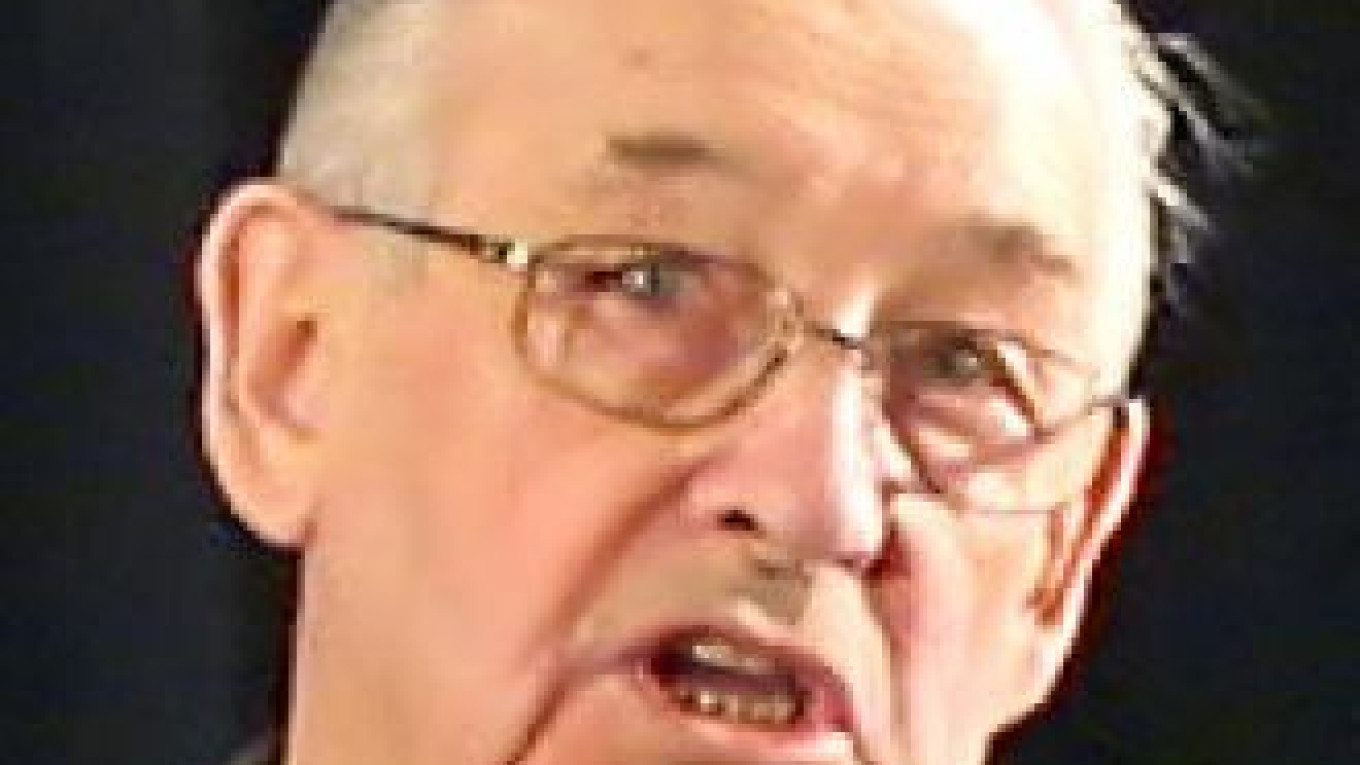A Polish film on the World War II-era Katyn massacre premiered on Rossia 2 state television on Friday, a symbolic gesture of goodwill by the Russian government ahead of a meeting between Prime Minister Vladimir Putin and his Polish counterpart, Donald Tusk, in Katyn.
Polish director Andrzej Wajda's Oscar-nominated "Katyn" shows how the Russians blamed the massacre of 20,000 Polish officers in Katyn, a forest in the Smolensk region, and elsewhere on Nazi Germany and punished anyone who suggested Russian involvement. Wajda's own father was among the officers killed in the 1940 massacre.
The Soviet Union only admitted responsibility in 1990, when Soviet leader Mikhail Gorbachev admitted that Stalin's NKVD secret police had killed the officers.
The issue remains sensitive, so Putin probably played a direct role in "Katyn's" premiere on Rossia, said Alexei Mukhin, a political analyst with the Center of Political Information.
“He is a strong Christian believer who is showing by this action that politicians are familiar with the idea of redemption,” Mukhin said Sunday.
He noted that it was Putin who had extended an invitation to Tusk in February to join him at Katyn on April 7 for 70th anniversary commemorations.
“It is an indication that Russia is taking a big step and counting on reciprocity," Mukhin said of the invitation.
"Katyn's" premiere was followed by a lengthy debate on Rossia 2, formerly known as Kultura, between Konstantin Kosachev, chairman of the State Duma's International Relations Committee; Oscar-winning director Nikita Mikhalkov; and several renowned historians. The panel was addressed by Wajda, who spoke from his home in Warsaw. Wajda urged viewers not to use his film to provoke conflict between Russians and Poles.
Kosachev praised the film for being both “anti-Stalin” and “anti-totalitarian."
“I am grateful to this film by Wajda, who has shown how this tragedy is seen by ordinary Poles,” he said.
Kosachev added, however, that he was worried that some Polish politicians use the Katyn tragedy to “sort out [Poland's] relationship with Russia.”
A Message from The Moscow Times:
Dear readers,
We are facing unprecedented challenges. Russia's Prosecutor General's Office has designated The Moscow Times as an "undesirable" organization, criminalizing our work and putting our staff at risk of prosecution. This follows our earlier unjust labeling as a "foreign agent."
These actions are direct attempts to silence independent journalism in Russia. The authorities claim our work "discredits the decisions of the Russian leadership." We see things differently: we strive to provide accurate, unbiased reporting on Russia.
We, the journalists of The Moscow Times, refuse to be silenced. But to continue our work, we need your help.
Your support, no matter how small, makes a world of difference. If you can, please support us monthly starting from just $2. It's quick to set up, and every contribution makes a significant impact.
By supporting The Moscow Times, you're defending open, independent journalism in the face of repression. Thank you for standing with us.
Remind me later.


